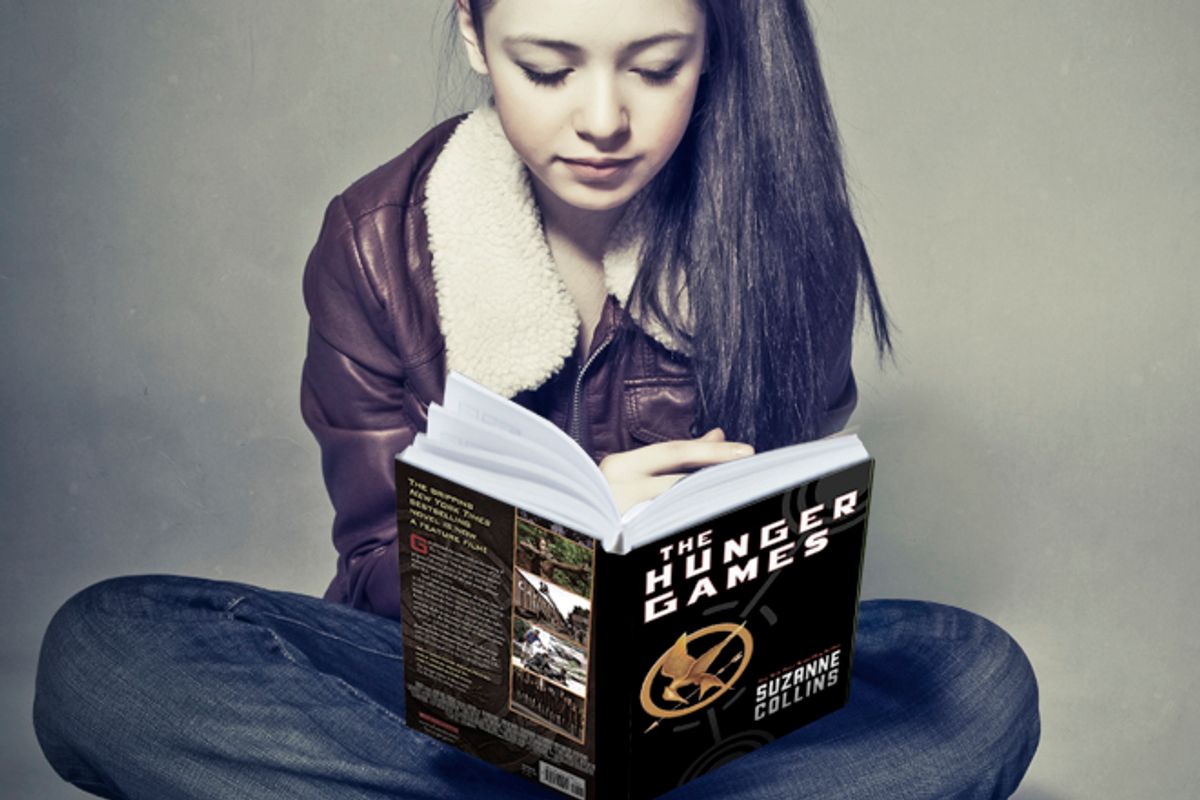Strong female protagonists in young adult fiction are nothing new. From Nancy Drew to Annemarie Johansen – Lois Lowry’s selfless heroine in Holocaust-era “Number the Stars” – to a plucky young Lucy Pevensie in “The Chronicles of Narnia,” young adult fiction has always enjoyed a healthy share of women ready to figure it all out, enlighten, and sometimes literally save the day.
But the female protagonists who star in this decade’s crop of young adult fiction show three interesting shifts.
1. Unlikely heroines
One refreshing trend is unlikely heroines – young women who are not really looking for fame or grandiose accomplishments but simply trying to survive. These protagonists are everyday whispering warriors. They show quiet strength at times but mostly just embody a confident if unassuming way of walking in a world where they definitely belong but feel no obligation to prove it.
A stellar example lies in the character of Marin in Nina LaCour’s Printz-winning young adult novel “We Are Okay.” Marin adjusts all on her own to life in New York, fleeing her West Coast past after being reared by a stoic grandfather who dies suddenly before her freshman year of college.
While this character masterfully shows the internal struggles common to LGBTQ teens discovering their sexuality, she also spends Christmas pretty much alone in her dorm room, fighting ennui, being snowed in, and remembering the gentle, confusing lies her grandfather piled up before he died. In the end, she simply decides to “be” in the world. Her resolution that “we are okay” indeed becomes as profound as any battle cry.
Flawed characters
Another trend is the proliferation of young women who embrace their imperfection in whatever big or small form it may come. They are much more willing to open themselves up to risk and and much more willing to reveal their humanity.
Perhaps with this trend, young adult fiction has grown up the most. Whether it’s the super quirky Flora Belle Buckman and her voracious reading of “Terrible Things Can Happen to You” in Newbery winner Kate DiCamillo’s “Flora and Ulysses,” or the parallel protagonist, intergenerational duo of Xan and Luna in “The Girl Who Drank the Moon” by Kelly Barnhill, female heroines in young adult fiction are now showing both their wisdom and their warts from cover to cover.
And this trend is consistent across genres: Whether readers enjoy realism, historical fiction or fantasy, the female characters are both out front and far out. These characters and their courageous authors feel no need for tidy endings or polished edges. And, if book sales or online reviews are any indication, readers love it because the characters live through these flaws boldly and without reservation.
The standout in this trend is a standout all around these days, with the introduction of the girl across the street that everyone comes to admire: Starr Carter, in Angie Thomas’ wildly successful “The Hate U Give.” Caught up in a senseless police shooting of a neighborhood teen, the protagonist navigates between her all-white school and her blatantly mischaracterized “ghetto” neighborhood companions.
With an uncle as a cop, Starr struggles to find her voice and describe the lived experience of being pulled over and watching her friend gunned down for driving while black. This piece is powerful all the way until its resolution precisely because Starr is a conflicted and confused character redefining “strong” as she traverses atypical situations.
Still not diverse
One final trend is quite a bit less uplifting than the first two: Today’s heroine is still very white and very upper middle class.
Yes, there are amazing black heroines these days, and they are racking up awards for their equally amazing authors: “The Lions of Little Rock,” by Kristin Levine; “Brown Girl Dreaming” and “Another Brooklyn,” both by Jacqueline Woodson, are notable examples.
Authors and publishers have made inroads. And individuals such as 13-year-old activist and trailblazer Marley Dias will help lead the way with her inspirational #1000BlackGirlBooks movement and the literary buzz it has created. But Marley isn’t alone in her need for more – and more meaningful – diversity and inclusion in young adult literature.
Diversity in young adult fiction needs to reflect the nation’s demographics – because currently it does not.
Kelly Roberts, Associate Professor of English; Program Coordinator, 6-9 and 9-12 licensure programs in English, Meredith College



Shares